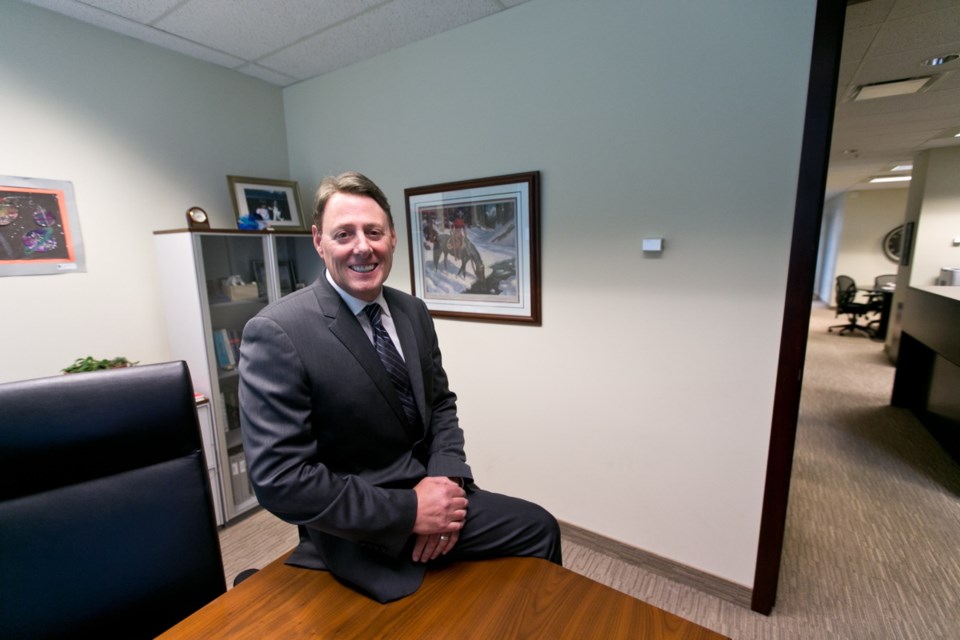A Victoria-based ally in the fight against fraud at financial institutions is preparing to expand its reach and influence by targeting the U.S. banking system.
Ascendant FX, a foreign-exchange and electronic payment firm that already represents about 2,500 regional banks in the U.S., has beefed up its suite of fraud-detecting tools in a bid to go after the other 8,000 banks.
Fines for failing to detect or report suspicious activity are substantial in the U.S., said Bernard Beck, Ascendant’s senior vice-president and chief compliance officer. “They can be in the hundreds of millions of dollars [and] can cripple a financial institution.”
Beck, a former RCMP commander who investigated commercial crime, said this kind of protection is about managing reputation as well as money, and noted there are several examples of massive fines for both large and small institutions.
According to legal documents, JP Morgan was fined $1.7 billion for failure to file suspicious-activity reports on transactions arising from the Bernie Madoff investment scheme. HSBC was hit with a $500-million penalty for failing to detect and report money-laundering activity. And a small regional bank in West Virginia, with just $94 million in assets, was nailed with a $4.5-million penalty for failure to detect suspicious activity involving $9.2 million in transactions.
While fines are expensive, Beck said, smaller banks often look at a complete security and compliance regime as too pricey.
That’s where Ascendant FX fits in. “We’re the differentiator. We have the ability when they are trading on our systems — when we are facilitating their foreign exchange or making payments around the world — to track a customer’s activity and detect against fraud, money laundering and terrorist funding,” Beck said.
All of those appear to be growth industries. A report from the Institute of Internal Auditors in the U.S. reported more than 1.5 million suspicious-activity reports were filed by deposit institutions in the U.S. in 2011 alone.
Ascendant’s software is called AFXOnline, a proprietary payment platform designed to detect and report suspicious and fraudulent activity. The goal is to insulate the financial institution from exposure to charges of not detecting or reporting cases of money laundering, terrorist financing and fraud.
Beck said in one recent case, their software detected a “structuring scam” in which a customer sending money to Ghana, perhaps to be laundered or used to fund nefarious activity, went to several banks and sent smaller sums of money to one recipient, hoping to avoid detection.
It has also detected a customer being unwittingly recruited by money launderers to receive funds into an account and then wire the funds overseas for a commission. It also found a business using multiple corporate and individual accounts for deposits and outgoing wires.
Beck said the onus is on U.S. banks to demonstrate they had controls in place and how they were compromised.
That can make Acendant’s system an attractive option.
“While AFXOnline does not replace a bank’s compliance department, it does effectively optimize it with robust tools and enhanced screenings that is saving bank reputations and assets and reducing risks and penalties,” said Beck. “The [penalties] can cripple a financial institution if you are a smaller regional bank and you don’t have resources or assets to survive.”
The company is constantly tweaking its software and security tools, as the criminal element is constantly on the move.
“They are very sophisticated, and very smart,” said Beck, noting criminals spend as much time or more working on schemes and ways to get around security systems as the good guys do creating them.
Ascendant FX was born out of Custom House Currency Exchange in 2010, after Custom House was acquired by Western Union.
The company has offices in Victoria, where its legal, compliance, finance and treasury departments are located, as well as in Ontario, New York, California and Nebraska. The company has 50 employees, many of them former Custom House employees.



